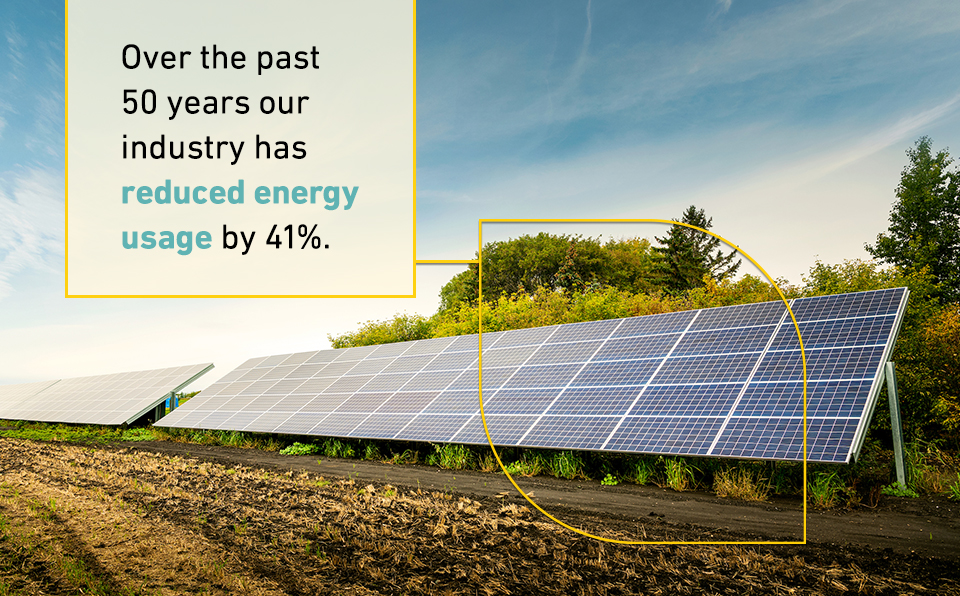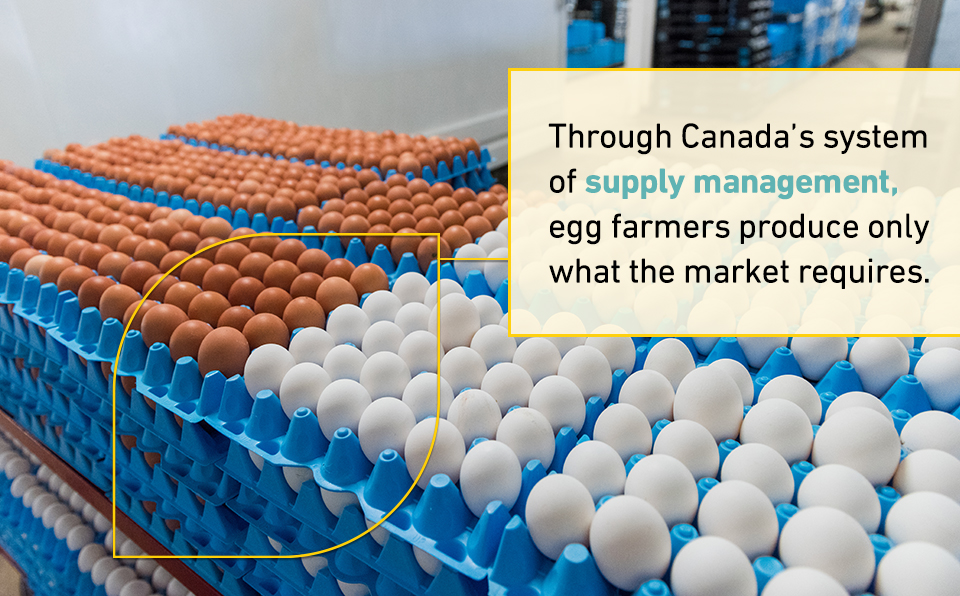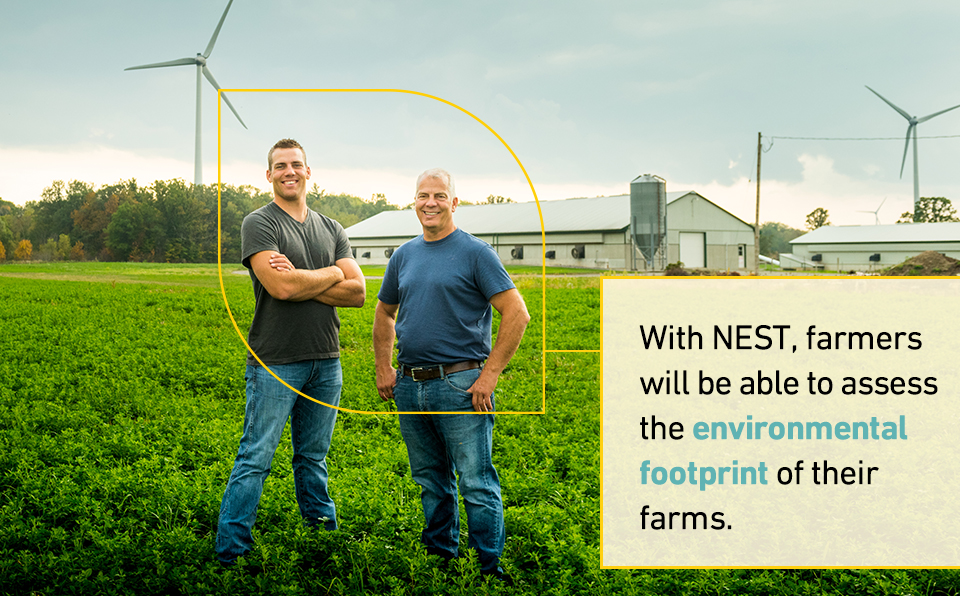
Sustainability Series: Innovations in sustainable egg farming
By Egg Farmers of CanadaEgg Farmers of Canada’s inaugural Sustainability Report outlines the sustainable growth of the egg industry, and our approach to stewarding Canada’s agricultural future. In part two of this three-part Sustainability Series, we look at some of the environmental sustainability initiatives at work on farms across Canada.
Egg farmers across Canada are on a journey towards a greener, more sustainable industry that puts egg farming at the forefront of sustainable agriculture.
Over the past 50 years, Canadian egg production has increased by 50%, while the industry’s environmental footprint has been reduced by almost 50%.1 We are building on this momentum by adopting new practices and embracing innovation to strengthen our commitment to environmental sustainability.
Sustainability is a long journey—one that can’t be measured in a single day or a single season. The initiatives outlined below will take time. As Roger Pelissero, Chair of Egg Farmers of Canada, highlights in our Sustainability Report, “The long-term viability of a farm operation happens only when we are able to adjust our daily tasks over time so that they tread even more lightly on the environment.”
Green energy sources and the net-zero egg barn
Canadian egg farmers are paving the way in sustainability by using alternate sources of energy to power farms, such as wind turbines and solar panels. Many egg farmers have also introduced LED lighting and cooling systems to improve energy efficiency. The introduction of these energy efficiencies helped reduce greenhouse gas emissions by 72% in the Canadian egg industry between 1962 and 2012.

In southern Alberta, the Brant Hutterite Colony is home to Canada’s first ever net-zero egg barn. This impressive barn was constructed with guidance from Egg Farmers of Alberta in 2014. Just six years later, the layer barn achieved its electricity net-zero target, meaning that the energy used to power the barn is equal to the amount of renewable energy created on-site. How did they do it? The barn features a roof lined with 100 solar panels to power operations, as well as thickened walls, in-floor heating and a state-of-the-art heat recovery ventilator.
Protecting Canada’s water, soil and air
While egg production has a low carbon footprint compared to other sources of animal protein, waste management techniques can help to reduce this footprint even further.2 Manure management and feed fertilizer are the most significant contributors to the environmental footprint of egg production..
To counteract environmental impacts of waste on water, soil and air, egg farmers employ a range of waste management techniques. These include using new technology to extract nutrients from manure, circular economy thinking and waste valorization—the process of reusing, recycling or composting waste materials and converting them into more useful products. Canada’s unique system of supply management also plays a role in reducing food loss and waste. The system encourages farmers to produce just enough food to meet demand. As a result, egg farmers have the tools to manage production and minimize food waste.

Assessing and analyzing our footprint
Farmers are always finding ways to do things more efficiently. That’s why in 2015, Egg Farmers of Canada conducted a life-cycle assessment to better understand how egg production affects the environment. Today, we are building upon these efforts with the upcoming launch of the National Environmental Sustainability Tool (NEST).

The unique online tool will give Canadian egg farmers the ability to assess the environmental footprint of their own farm and set goals to improve sustainability.
With NEST, farmers will benefit from:
- Opportunities to enhance on-farm efficiencies
- On demand access to the latest sustainability information and data
- Valuable resources to support long-term decision making
- Supporting the egg farming industry’s long-term sustainability journey
Led by Egg Farmers of Canada’s Research Chair in Sustainability, Dr. Nathan Pelletier at the University of British Columbia Okanagan, NEST will be the first ever on-farm sustainability tool designed specifically for egg farmers in Canada.
NEST will allow farmers to measure their farm’s environmental performance, including year over year comparisons, and set sustainability goals and track progress. The tool will also offer the latest sustainability information and data in egg farming—invaluable resources to support on-farm sustainable decision-making. An expected initial soft launch of the tool (Light NEST) will happen in winter 2021/2022, with a full launch later in 2022.
We know that as egg farmers, sustainability is not just our job—it’s our way of life. It’s also our way of building a brighter future for the next generations of farmers and Canadians. That’s why Egg Farmers of Canada continues to invest in enhancements that strengthen the long-term sustainability of our sector.
Click here to read our Sustainability Report to discover how Canadian egg farmers are delivering on a sustainable future.
1 https://www.eggfarmers.ca/2017/04/canadas-eco-friendly-eggs/
2 https://www.wri.org/data/protein-scorecard